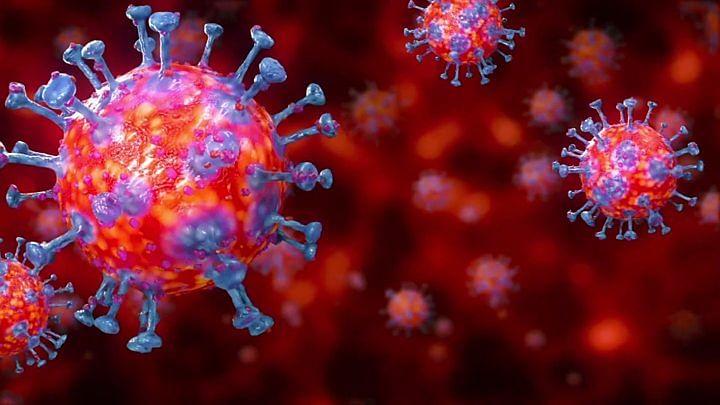India has 19 Variants of Novel Coronavirus, N440K More Prevalent

Image Courtesy: Social Media
A latest research published in the preprint website Biorxiv has enumerated the mutation types of the SARS-CoV-2 virus and the variants having the capability of evasion from the attack of the immune system.
The study was a collaborative effort of the Institute of Genomic and Integrative Biology (IGIB), New Delhi, Academy of Scientific and Innovative Research (AcSIR), Ghaziabad and Kurnool Medical College, Andhra Pradesh. The study reveals important findings that can impact global research and has significant effects for India as well.
The study created a compendium of genetic variants of the virus that are associated with escape capability from the immune system. The compendium is based on a rigorous review of already published literature on it. The compendium consisted of 120 unique genetic variants that are linked to immune escape and are circulating globally. Out of these 120 variants, 86 were found to be present in 63 countries (with a total of 26,917 genomes) and out of these, nine variants were found to be having a frequency greater than one.
The study also conducted a phylogenetic analysis. The phylogenetic analysis is done in order to find out what evolutionary development of a species reveals and this analysis is based on molecular genetic resources, for example, the genome sequences that the species have accumulated as a result of evolutionary change over time. The study’s phylogenetic analysis revealed that out of the 86 variants, 43 were found to have shown homoplasies which suggests that these could have emerged independently in different lineages. Again, out of the 43 homoplastic variants, nine were found to be circulating in the respective countries at a frequency greater than one.
The study also found something more interesting. According to it, the UK variant N501Y, which has caused panic worldwide, was present in a total of 290 genomes analysed and is present in USA, Australia, South Africa, Denmark and Brazil, apart from the UK. Likewise, the variant named as ORF3a:G251V was also found to have a global presence with highest frequencies in Hong Kong and South Korea. This variant is also reported to have immune escape capacity to a good extent.
THE INDIAN SCENARIO
India, too, has wide variants of the novel coronavirus. It was found that out of the 86 immune escape variants found widely distributed in different countries, India has 19 variants currently. With N440K having the highest frequency in India of 2.1%. This variant has the highest prevalence in the state of Andhra Pradesh. The state has 272 genome sequences reported till the study was conducted and the N440K variant was found in almost 34% of the 272 genomes. Again, the variant is homoplastic, which suggests that this could have emerged independently.
The study also did a time scale analysis of the emergence of the variants. The time scale analysis tells that the N440K variant has emerged in recent times. Importantly, this variant is also found in a case of COVID-19 reinfection in North India. This finding was also reported by a team led by Vinod Scaria.
The study analysed 6,370 genomes from India and found that the N440K variant was present in more than 2% of the genomes.
Commenting on the significance of this variant, Vinod Scaria is quoted to have said, “ Andhra Pradesh has a population of 4.5 crore. If one of the COVID-19 genomes isolated from this state carry this variant, then we should watch out for the strain.”
However, the study does not say anything about the clinical significance of the particular variant and any conclusion regarding its pathogenicity, virulence and contagiousness cannot be made on the basis of this study.
Also read: SARS-CoV-2: Indian Scientists Find Novel Variants in the Country
Get the latest reports & analysis with people's perspective on Protests, movements & deep analytical videos, discussions of the current affairs in your Telegram app. Subscribe to NewsClick's Telegram channel & get Real-Time updates on stories, as they get published on our website.
















